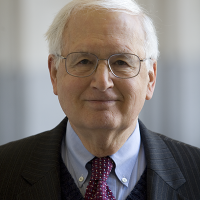Policy Brief: Dealing with a Rising China





Washington and Beijing both consider good bilateral relations to be vital, but their growing strategic rivalry has the potential to evolve into mutual antagonism. Top leaders on both sides see building a new type of U.S.-China relationship as necessary to avoid a drift toward confrontation. Yet the competition of capabilities now under way between the Chinese and U.S. military forces in the Pacific does not conform to the strategic goal, articulated by both sides, of striking a stable and mutually acceptable balance between cooperation and competition. Active measures are needed by leaders in both capitals to resolve this discrepancy between policy and action.


The Kissinger Institute works to ensure that China policy serves American long-term interests and is founded in understanding of historical and cultural factors in bilateral relations and in accurate assessment of the aspirations of China’s government and people. Read more


The Indo-Pacific Program promotes policy debate and intellectual discussions on US interests in the Asia-Pacific as well as political, economic, security, and social issues relating to the world’s most populous and economically dynamic region. Read more


